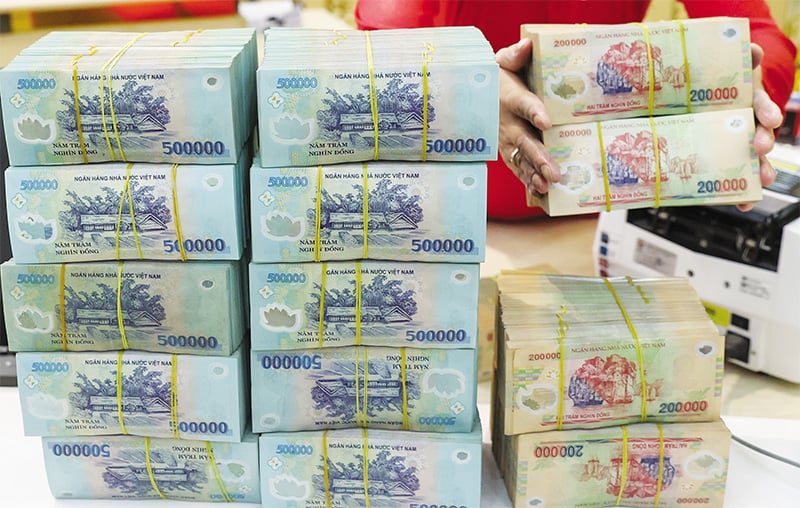 |
| Amending the Law on Credit Institutions towards legalizing Resolution 42/2017/QH14 to create conditions for banks to recover debts |
Debtors no longer have a chance to avoid paying bank debts.
Not only legalizing the right to seize collateral, the latest draft of the Law on Credit Institutions (amended) also abolishes the condition for seizure: "Collateral is not disputed property in a case that has been accepted but not yet resolved or is being resolved at a competent court".
Resolution 42/2017/QH14 allows banks to seize collateral, but it must be undisputed property. Delegate Pham Van Hoa ( Dong Thap ) said that this provision causes many customers to deliberately cooperate with third parties to create disputes and bring the matter to court as a way to avoid having their collateral seized. Therefore, the Draft Law on Credit Institutions (amended) abolishing the above seizure condition is appropriate.
“If you borrow, you have to pay back. If you borrow, you have to have collateral. Once there is a contract agreeing on the collateral, if the customer cannot repay the debt, the bank has the right to repossess the property and sell it, which is reasonable,” commented delegate Hoa Binh .
According to the Vietnam Banking Association, the current scale of bad debt in the entire system has reached over 1 quadrillion VND. Since Resolution 42/2017/QH14 expired, the right to seize collateral has not been legalized, and debt collection by banks has become extremely difficult, as many customers deliberately avoid paying their debts and refuse to hand over their assets to the bank for processing.
Mr. Nguyen Quoc Hung, Vice Chairman and General Secretary of the Vietnam Banks Association, hopes that amending the Law on Credit Institutions in the direction of legalizing Resolution 42/2017/QH14 will not only create conditions for banks in debt collection, but also be a wake-up call, forcing borrowers to be aware and responsible for paying debts, eliminating the mindset of finding every way not to pay debts and not handing over assets.
Lawyer Truong Thanh Duc, Director of ANVI Law Firm, also said that if the Law on Credit Institutions (amended) is issued, it will not only create a legal basis for banks to step up the handling of bad debts, but also affect the psychology of customers. When customers know that if they deliberately delay paying their debts, the bank will seize their collateral, they will adjust their behavior, cooperate more in paying their debts, and not deliberately delay paying their debts.
Currently, the “blood clot” of bad debt has swelled to over 1 quadrillion VND - a very large number, causing a waste of resources in the context of the current capital shortage of the economy . This is not only the capital of the banks, but also the capital of the people and the economy. Large bad debt affects the quality of bank assets, which is the reason why Vietnam's interest rate level is higher than many countries in the region.
Don't let banks only "look" at collateral when lending
Although agreeing with the legalization of the right to seize collateral of credit institutions, many National Assembly deputies are still concerned about the abuse of the right to seize collateral. In addition, there is a risk that credit institutions will only focus on collateral when lending, thereby loosening lending conditions, neglecting credit appraisal, giving rise to bad debts...
- Lawyer Truong Thanh Duc, Director of ANVI Law Firm
 Legalizing the right to seize collateral does not mean that banks have the right to seize collateral indiscriminately, but must comply with certain regulations, conditions, procedures and processes. Most importantly, this will send a strong message to the market about discipline, credit culture, and fair protection for both lenders and borrowers. Customers know that there is no "opportunity" to delay debt repayment - because even if they deliberately do not cooperate in handing over collateral, the bank will still seize it - will increase their awareness of debt repayment. At that time, banks will also feel more secure in lending.
Legalizing the right to seize collateral does not mean that banks have the right to seize collateral indiscriminately, but must comply with certain regulations, conditions, procedures and processes. Most importantly, this will send a strong message to the market about discipline, credit culture, and fair protection for both lenders and borrowers. Customers know that there is no "opportunity" to delay debt repayment - because even if they deliberately do not cooperate in handing over collateral, the bank will still seize it - will increase their awareness of debt repayment. At that time, banks will also feel more secure in lending. 
Explaining at the National Assembly Standing Committee meeting earlier this week, State Bank Governor Nguyen Thi Hong affirmed that the seizure of collateral is not a unilateral, unconditional action, but must comply with the scope, limits, and conditions of seizure, and respect the freedom and voluntary agreement of the parties. Regulations on the order and procedures for seizure must be fair, public, transparent, and ensure the legitimate rights and interests of the obligated party, credit institutions, and related parties.
“To avoid abuse of power, the Draft Law on Credit Institutions (amended) stipulates that credit institutions are not allowed to apply measures that violate the prohibitions of the law, are contrary to social ethics, and do not restrict the right to complain of the parties, especially the guarantor and the party holding the collateral. The activities of seizing collateral and the activities of credit institutions in general are subject to the management, inspection, supervision and supervision of state management agencies, including the State Bank,” the Governor affirmed.
Speaking to a reporter from Dau Tu Newspaper, a leader of a commercial joint stock bank affirmed that banks do not consider the right to seize collateral as a “privilege”, but only hope that this regulation will help customers increase their willingness to repay their debts. “Once customers are willing to repay their debts, banks are ready to support them, seizing collateral is only the last resort. For us, this is considered a psychological measure to help customers increase their responsibility to repay their debts, a tool to prevent customers from being unfaithful, not a… magic wand”, said this leader.
According to commercial banks, the source of money that banks lend is money mobilized from the people, so the principal and interest must be guaranteed for the bank. Therefore, debt collection not only ensures the business results of the bank, but also ensures the safety of the system.
It is expected that the Draft Law on Credit Institutions (amended) will be voted on and passed by the National Assembly next week and will take effect from August 1, 2025.
Source: https://baodautu.vn/nhieu-thay-doi-tai-luat-cac-to-chuc-tin-dung-sua-doi-canh-bao-do-voi-con-no-chay-y-d303048.html







![[Photo] Hanoi morning of October 1: Prolonged flooding, people wade to work](https://vphoto.vietnam.vn/thumb/1200x675/vietnam/resource/IMAGE/2025/10/1/189be28938e3493fa26b2938efa2059e)






























![[Photo] President Luong Cuong receives President of the Cuban National Assembly Esteban Lazo Hernandez](https://vphoto.vietnam.vn/thumb/1200x675/vietnam/resource/IMAGE/2025/9/30/4d38932911c24f6ea1936252bd5427fa)
![[Photo] Panorama of the cable-stayed bridge, the final bottleneck of the Ben Luc-Long Thanh expressway](https://vphoto.vietnam.vn/thumb/1200x675/vietnam/resource/IMAGE/2025/9/30/391fdf21025541d6b2f092e49a17243f)
























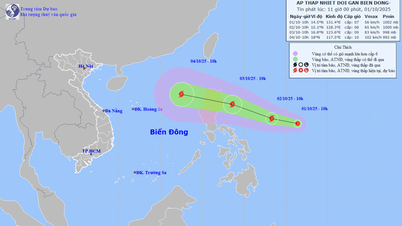


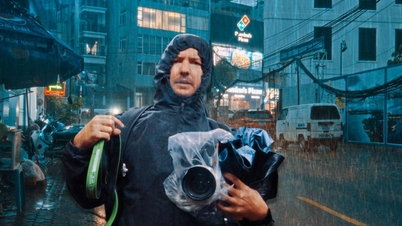



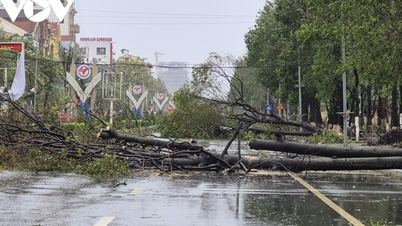




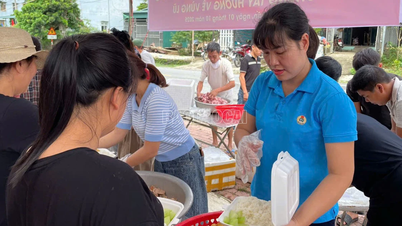





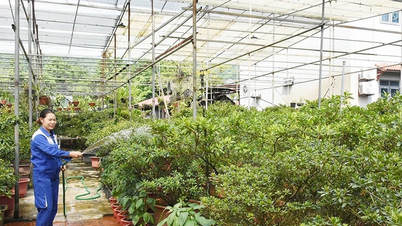














Comment (0)